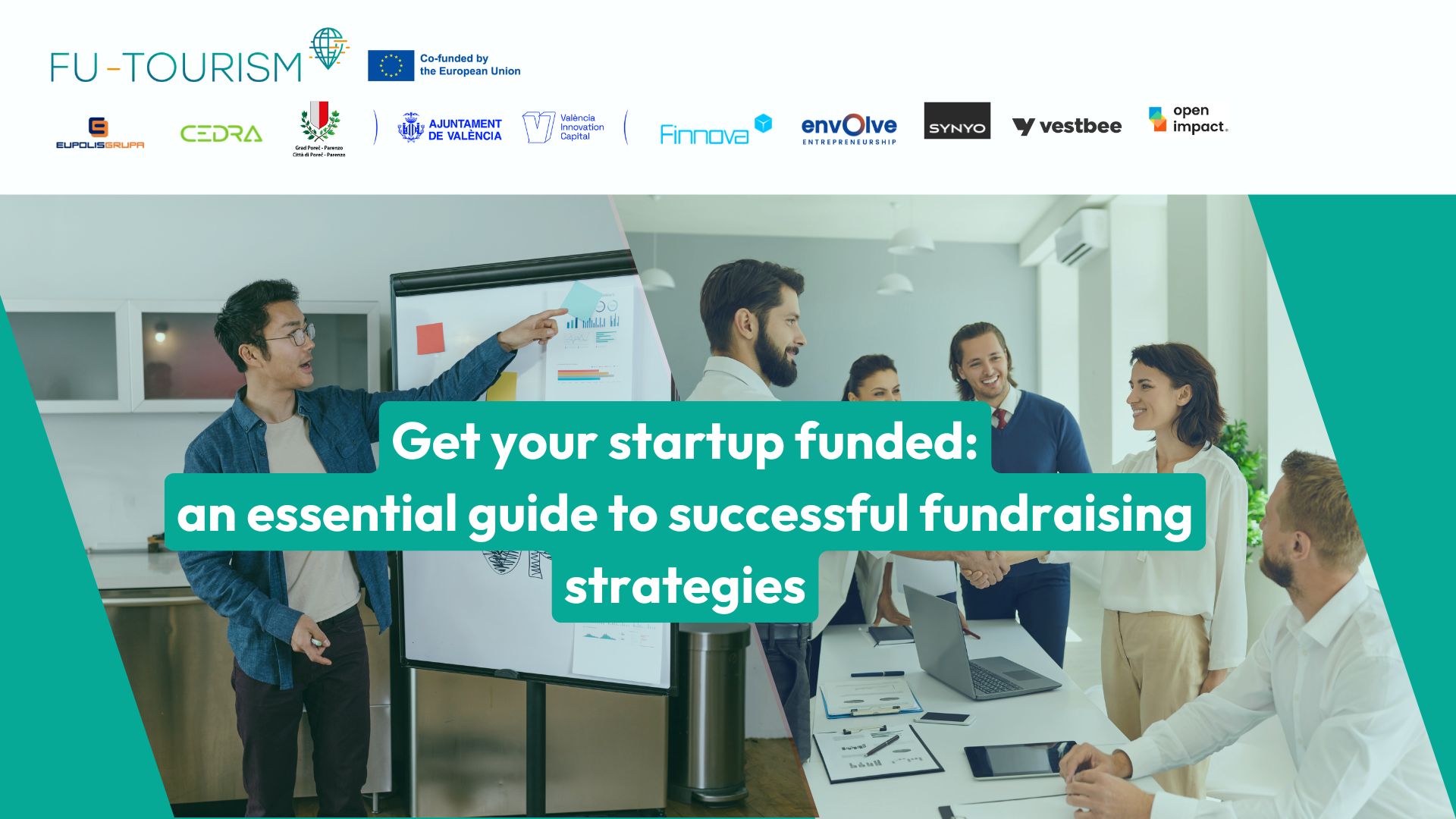
Get your startup funded: an essential guide to successful fundraising strategies
Navigating the fundraising landscape is a critical step for startups looking to fuel their growth. While securing investment can propel your business forward, determining the right time to pursue funding and effectively communicating your value to potential investors are key challenges. Investors seek financial returns, a reliable team, a compelling product, and a clear market opportunity. To maximize your chances of success, it’s essential to be well-prepared.
Vestbee, a leading European platform for startups, VC funds, accelerators, and corporates, created a guide outlining ten crucial areas every startup should focus on to engage investors effectively and demonstrate their growth potential.
Why is fundraising crucial for startups, and when is the right time to begin?
Raising funds can be a powerful push for your startup’s growth, but knowing when to start can be challenging. Securing capital isn’t just about getting money — it’s a strategic move. When you bring investors on board, you’re not only giving up a share of your ownership but also welcoming external perspectives that will influence key decisions. Investors often do more than provide financial support — they actively shape areas such as marketing, hiring, and product development, especially if they secure a board seat.
Because every startup’s journey is unique, there is no universal timeline for fundraising. It becomes an option once you’ve clearly defined a problem worth solving and shown that there’s a real demand for your solution. Getting to this point often requires market analysis, prototype development, and extensive testing to validate your concept.
When you’ve reached this stage, it’s crucial to prepare thoroughly for the fundraising process. Investors will closely examine your business to assess its growth potential, evaluate risks, and see if it fits within their portfolio. Presenting your startup in the best light and confidently addressing tough questions is key to securing their interest.
How to impress investors and avoid common mistakes?
To help you navigate this process, here are ten essential areas that every startup should focus on when preparing to meet with investors. Addressing these will not only help you make a strong impression but also demonstrate your startup’s reliability, scalability, and growth potential — making a compelling case for why investors should come on board.
- Prepare a strong pitch deck: Startups need a concise, compelling pitch deck that covers the key aspects of the business, including the problem, solution, market opportunity, product, team, and financial projections.
It is crucial to recognize that a pitch deck is more than a formality — it serves as the first impression and an opportunity to convey the vision, showcase the team, and illustrate the value of the venture. Common mistakes often arise when founders don’t take the process seriously. “In an attempt to impress investors, many founders cram their pitch decks with excessive details, charts, and text. This overload can overwhelm the reader, making it difficult to extract the key messages and understand the core proposition,” Pawel Maj warns, describing one of them in his Top 30 Mistakes Founders Make in Their Pitch Decks guide.
All of them lead to a misunderstanding of what investors seek. To avoid them and learn more about creating the perfect pitch deck, check out the insights in Vestbee’s Get Your Startup Funded, Perfect Pitch e-book.
- Know your team’s strengths: founders should clearly explain their roles, background, and expertise. They also should identify any gaps in the team’s skillset and how they plan to fill them.
- Clarify the product’s value: clearly articulate the problem the product solves, how it works, and the unique features that set it apart from competitors.
- Understand your target audience: identify the main target market, whether it’s B2C or B2B, and demonstrate a clear strategy for acquiring and serving these customers.
- Assess the competitive landscape: be prepared to discuss competitors, market position, and what differentiates your startup, as well as strategies for staying ahead.
- Define the business model: present a clear strategy for generating revenue, including the chosen business model and how it aligns with growth goals.
- Provide financial performance and projections: share historical financial data, traction, and forecasts for the next 12-24 months, with a focus on growth and scalability.
- Highlight key metrics: be ready to discuss important metrics like customer acquisition costs (CAC), lifetime value (LTV), monthly recurring revenue (MRR), and churn rate.
- Outline a sales strategy: present a detailed sales approach, including channels, acquisition costs, and conversion rates, along with any growth hacks or partnerships.
- Plan for future growth: discuss mid and long-term plans for product development, scaling, hiring, and market expansion, providing a clear vision for the company’s future.
Accelerators as an alternative fundraising option for startups
Beyond traditional fundraising, startups have the opportunity to apply for acceleration and incubation programs. These programs offer guidance, mentorship, and fundraising support, often including cash investments. The FU-TOURISM project is one notable example.
It offers a 36-month program (2023-2026) aimed at empowering tourism SMEs to become more sustainable, resilient, and innovative. By establishing a network of business support organizations across six European countries — Croatia, Spain, Belgium, Greece, Poland and Austria, this initiative provides funding and specialized knowledge to 102 SME projects aspiring to transform their tourism practices.
In conclusion, successful fundraising goes beyond obtaining capital. It’s about building a strong foundation for the future of your startup. By addressing the critical areas discussed, founders can establish themselves as trustworthy partners for investors. This level of preparation not only enhances the chances of securing essential funding but also sets the stage for long-term growth.
On the other hand, the right investors bring more than just financial support. They can provide insights, mentorship, and connections that can boost your startup’s growth significantly. As you navigate this process, keep in mind that clear communication, a well-defined vision, and a deep understanding of your market and business model are key to your success.




